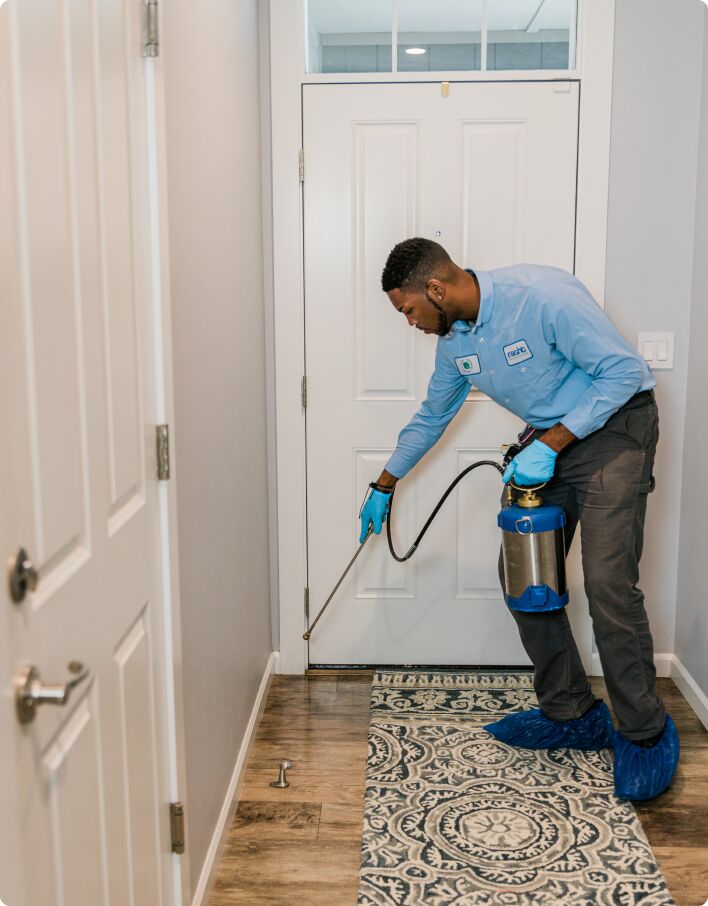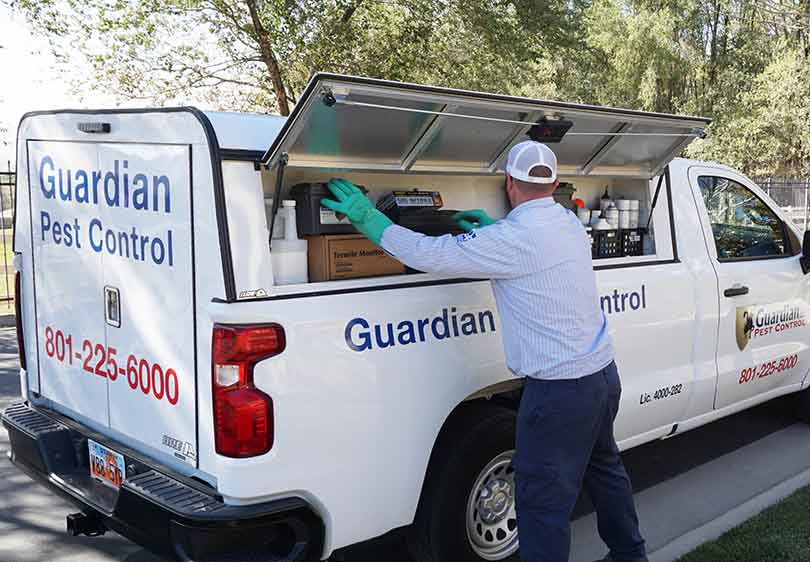Orem Pest Control Solutions: Protecting Your Home, Throughout
Orem Pest Control Solutions: Protecting Your Home, Throughout
Blog Article
An Insight Into Various Kinds of Pest Control Solutions Available in the marketplace
In the world of parasite control services, a varied range of approaches exists to address the persistent difficulty of handling unwanted trespassers. From traditional chemical sprays to innovative biological controls, the market offers a spectrum of options made to match numerous requirements and choices. As parasites remain to adjust and develop, the necessity for effective and sustainable pest control steps becomes increasingly extremely important. Comprehending the subtleties of each sort of bug control solution can be not only informing yet additionally crucial for maintaining a harmonious coexistence with the environment and the animals that populate it.
Chemical Sprays
Chemical sprays are generally used in parasite control services to efficiently get rid of and prevent infestations. These sprays have different chemicals that target specific insects, such as rats, termites, or bugs. The energetic ingredients in these sprays function by interrupting the pests' nerves, triggering paralysis or death upon contact.
Specialist pest control services use trained specialists who recognize the correct application of chemical sprays to make sure optimum performance while lessening threats to people, pets, and the atmosphere. These service technicians perform extensive examinations to determine the kind of insect problem and identify one of the most appropriate spray to resolve the problem.
One of the main benefits of using chemical sprays in pest control is their ability to supply immediate results. When used, the spray begins working swiftly, reducing the population of insects in a prompt way. Additionally, chemical sprays can offer durable protection versus future infestations when used on a regular basis as part of a detailed parasite management strategy.
Biological Control

Classical organic control includes presenting all-natural opponents of the parasite varieties right into the atmosphere. These all-natural adversaries, such as killers, microorganisms, or bloodsuckers, help regulate parasite populations by preying on or contaminating them. This approach is typically made use of for lasting insect administration and establishing an all-natural equilibrium in the ecological community.
On the other hand, augmentative biological control entails releasing great deals of helpful organisms, such as aggressive bugs or nematodes, to manage existing pest populaces. This approach is more immediate and can be particularly beneficial in agricultural settings to deal with present insect invasions.
Biological control techniques are favored for their eco-friendly nature, minimal impact on non-target species, and minimized chemical pesticide use, making them a lasting parasite management alternative for different markets.
Catches and Baits

On the various other hand, lures are compounds used to attract insects to a details place for control functions. By recognizing the habits of the target insect, parasite control experts can efficiently utilize lures and catches to manage pest infestations efficiently.
Integrated Pest Management
Integrated Insect Administration (IPM) is a detailed method that her explanation integrates different bug control methods to effectively take care of and remove parasites while minimizing ecological impact. IPM focuses on long-term prevention strategies by taking into consideration the biology and habits of insects, in addition to the specific atmosphere in which they exist. This approach incorporates a range of parasite control strategies such as biological control, habitat control, modification of cultural methods, and the usage of resistant plant selections.
Among the essential concepts of IPM is to focus on non-chemical parasite control techniques whenever possible. This may include using all-natural predators to control pest populaces or implementing physical barriers to stop infestations. Chemical pesticides are made use of as a last hope and are applied deliberately to reduce harm to non-target organisms and the bordering environment.
Heat Treatment
As a corresponding approach to Integrated Pest Administration techniques, warm treatment is a targeted technique that utilizes the power of high temperatures to eradicate pests successfully and effectively. This technique is specifically beneficial in getting rid of bed pests, termites, and other parasites that may be hiding in hard-to-reach areas within a framework. By increasing the ambient temperature to levels that are deadly to the insects however secure for the building, warm treatment can pass through cracks, holes, and furnishings where conventional pesticides could not get to.
One of the crucial benefits of heat therapy is that it is chemical-free, making it a eco friendly and secure alternative for insect control. In addition, warmth treatment is recognized for its ability to provide fast outcomes, often settling bug invasions in a single therapy session.
Conclusion

 Having resolved the effectiveness of chemical sprays in pest control services, the emphasis More Help now changes to biological control methods as a sustainable option for taking care of insect invasions. Lures and traps are vital tools in pest control solutions, offering targeted solutions for details pests. By understanding the behavior of the target parasite, parasite control specialists can successfully utilize lures and traps to manage bug infestations successfully.
Having resolved the effectiveness of chemical sprays in pest control services, the emphasis More Help now changes to biological control methods as a sustainable option for taking care of insect invasions. Lures and traps are vital tools in pest control solutions, offering targeted solutions for details pests. By understanding the behavior of the target parasite, parasite control specialists can successfully utilize lures and traps to manage bug infestations successfully.Integrated Bug Management (IPM) is an extensive technique that combines various parasite control methods to successfully handle and eliminate pests while lessening ecological influence.In final thought, numerous kinds of pest control services are available in the market to address different bug problems.
Report this page